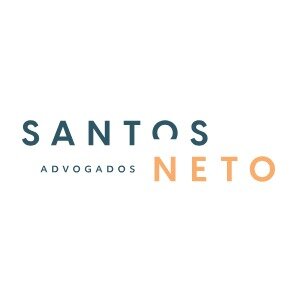Best Sustainable Finance Lawyers in São Paulo
Share your needs with us, get contacted by law firms.
Free. Takes 2 min.
List of the best lawyers in São Paulo, Brazil
About Sustainable Finance Law in São Paulo, Brazil
Sustainable finance in São Paulo, Brazil, refers to the integration of environmental, social, and governance (ESG) criteria into financial activities, investments, and policies. The primary goal is to promote economic growth that aligns with environmental protection and social responsibility. São Paulo is a major financial hub in Latin America and has been at the forefront of encouraging green bonds, eco-friendly business funding, and ethical investment practices, all guided by both national and local legal frameworks. Local authorities and private sector players work together to create policies and financial instruments supporting sustainability, including aligning investments with the United Nations Sustainable Development Goals (SDGs).
Why You May Need a Lawyer
Navigating sustainable finance can be complex due to overlapping regulations, evolving ESG standards, and the need to comply with both Brazilian and international frameworks. Legal practitioners with expertise in this area can assist with:
- Structuring green bonds or other sustainable investment products
- Ensuring regulatory compliance for banks, investment managers, and corporations engaged in sustainable projects
- Advising on sustainable procurement and supply chain requirements
- Drafting and reviewing contracts for sustainability-linked loans
- Assisting with environmental risk assessments and reporting obligations
- Navigating incentives or subsidies provided for sustainable projects
- Managing disputes or regulatory investigations related to greenwashing
- Helping businesses adapt to updated ESG disclosure requirements
Timely legal advice can ensure that business activities are not only profitable but also legally compliant and socially responsible.
Local Laws Overview
Sustainable finance in São Paulo is governed by a combination of federal, state, and municipal laws, regulations, and policies. Key aspects include:
- Federal Law No. 12.187/2009 (National Policy on Climate Change): Establishes general principles for reducing greenhouse gas emissions and promoting sustainability across economic activities.
- Resolution of the Central Bank of Brazil (Bacen Resolução No. 4.327/2014): Requires financial institutions to establish social and environmental responsibility policies.
- State and Municipal Incentives: São Paulo’s government offers grants, tax incentives, and other programs for companies investing in renewable energy and sustainability projects.
- Brazilian Securities and Exchange Commission (CVM) Normative Rules: CVM’s guidelines cover ESG reporting for publicly traded companies and green bonds regulations.
- Corporate Law and ESG Requirements: Companies must adapt their bylaws and annual reporting practices to align with ESG and sustainable finance standards.
- International Standards: Many São Paulo-based investors and corporations also adhere to global frameworks like the Equator Principles, Green Bond Principles, and the Task Force on Climate-related Financial Disclosures (TCFD).
It is essential to keep up-to-date with both local and international developments, as laws and guidelines in this field change frequently.
Frequently Asked Questions
What is sustainable finance?
Sustainable finance involves financial activities that directly or indirectly support environmental protection, social responsibility, and transparent governance, such as green bonds, ESG funds, and climate-related investments.
Who regulates sustainable finance in São Paulo?
The main regulators include the Central Bank of Brazil, the Brazilian Securities and Exchange Commission (CVM), and local government bodies such as the São Paulo State Environment Secretariat.
Are there tax incentives for sustainable projects?
Yes. São Paulo's state government and certain municipalities provide tax breaks, grants, and special financing lines for green infrastructure and renewable energy projects.
What are ESG criteria?
ESG stands for Environmental, Social, and Governance. These are standards for a company’s operations that socially conscious investors use to screen potential investments.
How can green bonds be issued in São Paulo?
Green bonds can be issued by public or private entities, following regulations set by the CVM and adhering to recognized international standards, often with legal assistance for compliance and disclosure.
What are the risks of non-compliance?
Failure to follow sustainable finance regulations can result in regulatory penalties, reputational damage, lawsuits, and loss of access to certain funding sources.
Do banks in São Paulo need to follow ESG policies?
Yes. All financial institutions regulated by the Central Bank must establish and report on their social and environmental responsibility policies.
Is ESG reporting mandatory for companies?
For publicly traded companies, certain ESG disclosures are required by the CVM. Many private companies voluntarily report to attract sustainable funding and comply with best practices.
How can a lawyer help with sustainable finance?
A lawyer can provide strategic advice, draft and review contracts, help obtain incentives, ensure regulatory compliance, and represent clients in negotiations or disputes.
What is greenwashing and how can it be avoided?
Greenwashing refers to misleading claims about the environmental benefits of a product or activity. Legal counsel can help companies accurately document their sustainability initiatives to avoid accusations and regulatory actions.
Additional Resources
- São Paulo State Secretariat for the Environment (SMA): Resource for local environmental and sustainability policies.
- Banco Central do Brasil (Central Bank of Brazil): Regulates financial institutions’ ESG requirements.
- Comissão de Valores Mobiliários (CVM): Oversees capital market and green bond regulations.
- Brazilian Association of Financial and Capital Market Entities (ANBIMA): Publishes guidelines and best practices for sustainable finance.
- Brazilian Business Council for Sustainable Development (CEBDS): Offers educational materials and advocacy for sustainable corporate practices.
Next Steps
If you need legal assistance in the field of sustainable finance in São Paulo, Brazil, begin by gathering documentation about your business, prospective investments, or planned projects. It is advisable to:
- Consult a lawyer specializing in environmental law, finance law, or ESG practices
- Conduct a compliance check to identify potential risks or gaps in your processes
- Request a legal review of contracts, financing instruments, or disclosure documents
- Stay updated on changing regulations and available government incentives
- Contact relevant agencies or advisory bodies for guidance on sustainable finance standards
A qualified legal professional can offer tailored support, help mitigate risks, and ensure your activities are both financially sound and aligned with sustainability objectives.
Lawzana helps you find the best lawyers and law firms in São Paulo through a curated and pre-screened list of qualified legal professionals. Our platform offers rankings and detailed profiles of attorneys and law firms, allowing you to compare based on practice areas, including Sustainable Finance, experience, and client feedback.
Each profile includes a description of the firm's areas of practice, client reviews, team members and partners, year of establishment, spoken languages, office locations, contact information, social media presence, and any published articles or resources. Most firms on our platform speak English and are experienced in both local and international legal matters.
Get a quote from top-rated law firms in São Paulo, Brazil — quickly, securely, and without unnecessary hassle.
Disclaimer:
The information provided on this page is for general informational purposes only and does not constitute legal advice. While we strive to ensure the accuracy and relevance of the content, legal information may change over time, and interpretations of the law can vary. You should always consult with a qualified legal professional for advice specific to your situation.
We disclaim all liability for actions taken or not taken based on the content of this page. If you believe any information is incorrect or outdated, please contact us, and we will review and update it where appropriate.

















